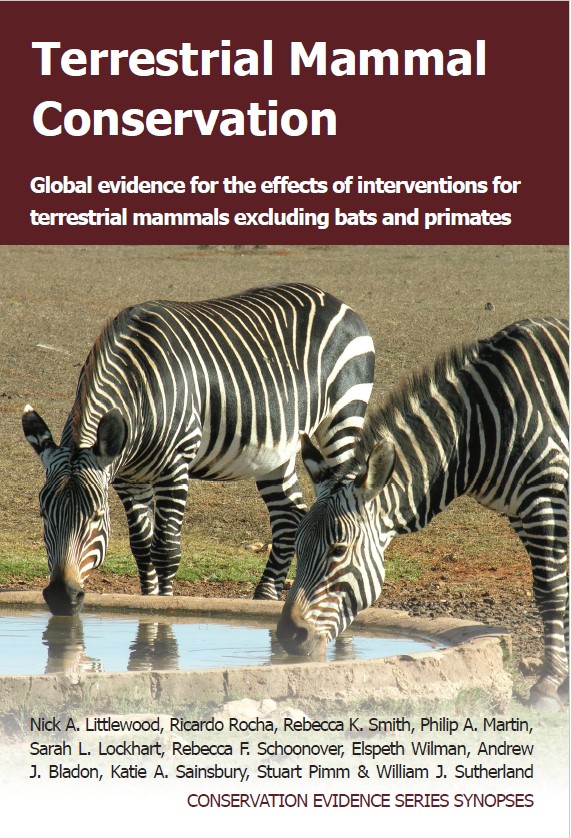Train and support local staff to help reduce persecution of mammals
-
Overall effectiveness category Likely to be beneficial
-
Number of studies: 1
View assessment score
Hide assessment score
How is the evidence assessed?
-
Effectiveness
75% -
Certainty
40% -
Harms
0%
Study locations
Supporting evidence from individual studies
A replicated, before-and-after study in 2003–2011 in savanna grassland in four ranches in southern Kenya (Hazzah et al. 2014) found that employing local tribesmen to dissuade pastoralists from killing lions Panthera leo and to assist with livestock protection measures, alongside compensating for livestock killed by lions, reduced lion killings by pastoralists. The two schemes occurred at the same time at three group ranches, so their individual effects could not be separated. Compensation for livestock losses was estimated to reduce lion killing by 87–91% whilst additionally employing lion guardians reduced killings by 99%. The four ranches comprised a 3,500-km2 study area. Compensation for verified livestock losses to lions was initiated at three of the group ranches between 2003 and 2008. Respected tribesmen, ‘lion guardians’, were employed to dissuade pastoralists from killing lions and to assist with livestock protection measures, such as reinforcing bomas. The scheme commenced at the four sites between 2007 and 2010. Lion mortality data, from 2003 to 2011, were collated primarily from community informants and direct interviews with lion hunters.
Study and other actions tested
Where has this evidence come from?
List of journals searched by synopsis
All the journals searched for all synopses
This Action forms part of the Action Synopsis:
Terrestrial Mammal Conservation
Terrestrial Mammal Conservation - Published 2020
Terrestrial Mammal Conservation





)_2023.JPG)














